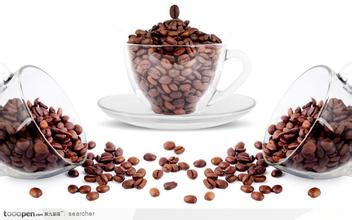The effect of washing on the taste of coffee beans the difference between washing and sunbathing lies in where the flavor is and what is not.
Introduction to the treatment of coffee beans
1. Choose beans:
Put the harvested fruit in the water tank, and the ripe fruit will sink, while the unripe and overripe fruit will float up and can be removed.
2, dry:
Put the selected ripe fruit in the square and expose it for 5-6 days until it is fully dry. At this time, the fruit becomes dark brown and the moisture content is 13%.
3, shelling:
After drying, the peel becomes fragile and easy to fall off, and can be removed by machine. Farms run by enterprises usually have their own shelling factories, while small farms are processed by processing centers.
4, selection and grading:
Exquisite farms identify defective beans manually or by machine, pick them out and throw them away. Manual selection usually uses a transmission belt about 1 meter wide, with several female workers sitting on both sides visually picking out bad beans, and some good farms are even selected several times until defective beans are not seen. Machine selection rules use computers to identify defective beans, followed by a grading process that divides coffee beans into several quality grades according to established standards. Good coffee enters the selected coffee market, while bad coffee flows into the commercial coffee market.
5, polish:
The exocarp and endocarp can only be removed by shelling treatment. At this time, the silver film is still wrapped in the outer layer of the seed, and the film has to be ground off by machine. Then, pack the coffee beans into a bag of 60KG. The weight of bags varies slightly from region to region. Most of them use sacks.

Important Notice :
前街咖啡 FrontStreet Coffee has moved to new addredd:
FrontStreet Coffee Address: 315,Donghua East Road,GuangZhou
Tel:020 38364473
- Prev

What are the skills of coffee, flower, love and leaves for beginners?
The introduction of coffee flower drawing skills directly into the shaping method is the most difficult way of coffee flower drawing skills. Because this method must pay attention to all kinds of details, from the state of espresso, the way the milk is foamed and the degree of organizational detail, to the skill of combining the two, coupled with the direct injection molding method, the forming time of the pattern is very short, so it also needs to be very smooth and has
- Next

Video introduction to the training technology of the basic gesture making process of coffee flower
Coffee flower technology introduction 1, pour the milk into the milk bubble pot, the amount should not exceed the milk bubble pot 1 big 2, otherwise the milk will overflow due to expansion when making milk foam. 2. Heat the milk to about 60 degrees, but not more than 70 degrees, otherwise the protein structure in the milk will be destroyed. Be careful! The lid and strainer cannot be heated directly. (if you make ice milk foam, you will make the cow
Related
- What is the meaning of lactic acid fermentation with coffee bean treatment?
- How to judge the state of foam by sound?
- How does the latte pull out the unicorn pattern? Come to get for a little trick to improve the flower pull!
- Will flower pulling affect the taste of the latte?
- Do you know the history of coffee?
- The difference between honey treatment and sun washing what is raisin honey treatment?
- What kind of milk can a novice use to make coffee foam to keep the foam longer? The correct method and skills of milking tutorial sharing
- Why do washed coffee beans taste sour? Flavor characteristics of washed Coffee
- Introduction to the skill of how to practice the size and height of water injection around the circle of hand-brewed coffee
- How do beginners practice coffee flower drawing from scratch?

